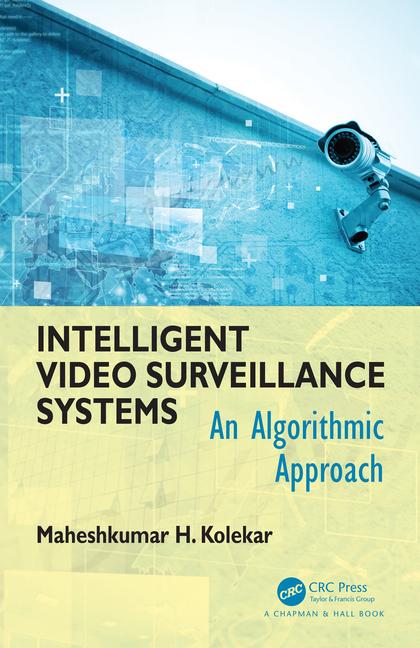“These pilots with Netflix and Good Technology clearly demonstrated how a highly mobile workforce can receive digital keys over-the-air and to their phones and use them to open doors, just like they had previously been doing with their existing photo ID cards, keyfobs or tags,” said Debra Spitler, vice president of Mobile Access Solutions with HID Global. “As one pilot participant told me, “only having to carry one device for so many daily tasks is excellent.”

|
| Netflix and Good Technology employees were given Samsung Galaxy S III handsets equipped with NFC capabilities and HID Global digital keys, allowing them to open doors by simply holding the phones up to the readers. |
HID Global recently completed two pilot programs to determine the validity of mobile access control using near field communication (NFC)-enabled smartphones to open doors without compromising physical security. Conducted at the headquarters of Internet video subscription service provider Netflix and enterprise mobility solutions provider Good Technology, the pilot programs used HID Global’s iCLASS SE platform, including iCLASS Seos credentials for use on NFC-enabled smartphones.
Among the many benefits of using smartphones to open doors that participants cited were improved security and convenience.
“I love the idea of mutually authenticated reader-badges – it reduces the threat of badge skimming and replay attacks,” said Bill Burns, director of Netflix IT Networking & Security.
David Tsai, a Netflix desktop analyst, agreed. “Technically, the physical security is better since it requires that a person know the phone can be used as a key, know the passcode to get into the phone, and know how to activate the key.”
Similar feedback was provided by Netflix helpdesk support technician Lynn Chikasuye, who said, “People will rarely lend out their phone, which prevents unwanted use.”
Good Technology also cited the security benefits of mobile access control as compared to photo ID badges, along with improved user convenience for today’s highly mobile workforce.
“Our customers are always looking at new ways to enable mobile worker productivity and efficiency without having to take security risks,” said Michael W. Mahan, Good Technology’s senior vice president, special Markets. “This pilot proved that using both a layered security approach and smartphones to provide secure physical access to buildings is a great way to meet their goals of adding security without complexity.”
Pilot Details
In selected locations at each site, HID Global’s multiclass SE readers replaced proximity readers, and pilot participants were given Samsung Galaxy S III handsets equipped with NFC capability and HID Global digital keys, allowing them to securely store and emulate user credentials to open doors by presenting the handsets to the HID readers.
Having traditionally used keyfobs for access control, Netflix sought to evaluate the benefits of provisioning digital keys over the air to its employees’ smartphones to streamline the on-boarding process for new employees. Going into the pilot, the company also believed digital keys could be a valuable addition to smartphones in its bring-your-own-device mobility environment. By the time the pilot launched, almost half of participants were socializing the mobile access experience and opening doors using proximity tags affixed to the back of their current phones. The Netflix pilot was intended to test the concept of a true mobile access experience that blended user convenience and security.
In addition to testing basic over-the-air mobile access control capability, Good Technology and HID Global extended Good’s mobile access pilot to evaluate the use of an NFC-enabled SARGENT SE LP10 lock on the door to an executive’s office that colleagues use as a temporary conference room when he is away. This allowed the executive to control access to his office remotely, offering it only to select members of his team during specified times, as well as run reports about who used his office when.

|
| Following HID Global’s pilot programs at the headquarters of Netflix and Good Technology, participants cited cited improved security and ease of use as two of the many benefits of opening doors with near field communications (NFC)-enabled smartphones to open doors. |
Results
A third party survey of a third-party survey of participant revealed the following:
- More than 80 percent of Netflix respondents felt that the application for unlocking a door was intuitive, and nearly 90 percent described it as easy to use.
- This perception was echoed at Good Technology, where more than 80 percent of respondents felt the smartphone was more convenient to use than their current access card, primarily because they never forget their phones like they do their badges. All Good Technology respondents said they liked the look of the door unlock application on their phones, and said it was intuitive and easy to use.
- Approximately 75 percent of Netflix respondents said they would be willing to load the app onto their own personal smartphone. Roughly 75 percent at Netflix and 67 percent at Good Technology said that other people who saw them using their smartphone to access the building asked questions or expressed an interest in it.
- More than 83 percent of Good Technology participants said that the company’s physical security was improved by using a smartphone rather than a card to open locked doors. This included respondents who highlighted the benefits of layered security, and being able to use a PIN to unlock their phone and then use the mobile access app to gain entry.
- 87 percent of Netflix respondents said they would want to use a smartphone to open all locked doors at the company.
- All Good Technology respondents saw value in additional uses of digital keys on their smartphones, such as logging on to their PC and using their smartphones for secure print authentication, as well as personal uses such as using their smartphones to access their residence and as a mobile wallet for payment. All respondents also said they would like to be able to use their NFC-enabled smartphones to receive digital keys over-the-air that could be used to access a hotel room.
- 81 percent of Netflix respondents said the fact that the company is testing and deploying mobile access makes it a more fun and exciting place to work.
Additionally, Good Technology was impressed with HID Global’s comprehensive credential provisioning and management services. In a mobile environment such as that created for the pilot, HID Secure Identity Services will enable users to create secure identities and digital keys for NFC-enabled handsets using a cloud-based portal via a managed service, then provision them over the air to their smartphones.
Both pilots highlighted a number of opportunities to improve the mobile access control experience as the industry moves closer to deployment. This includes bringing more mobile network operators and handset manufacturers into the ecosystem so that users have more service and product choices. Additionally, participants cited the need for an “always on” access control experience, which requires that NFC handsets be able to open doors without having to start an app, and that their secure elements, either embedded in the phone or in their subscriber identity module (SIM) cards, are made available for over-the-air communications directly with service providers. Pilot participants also highlighted the need for solutions that do not excessively drain battery, are available even when the battery is dead, don’t interrupt other tasks, and deliver an intuitive user interface with accurate graphical representations and conveniently sized icons.








